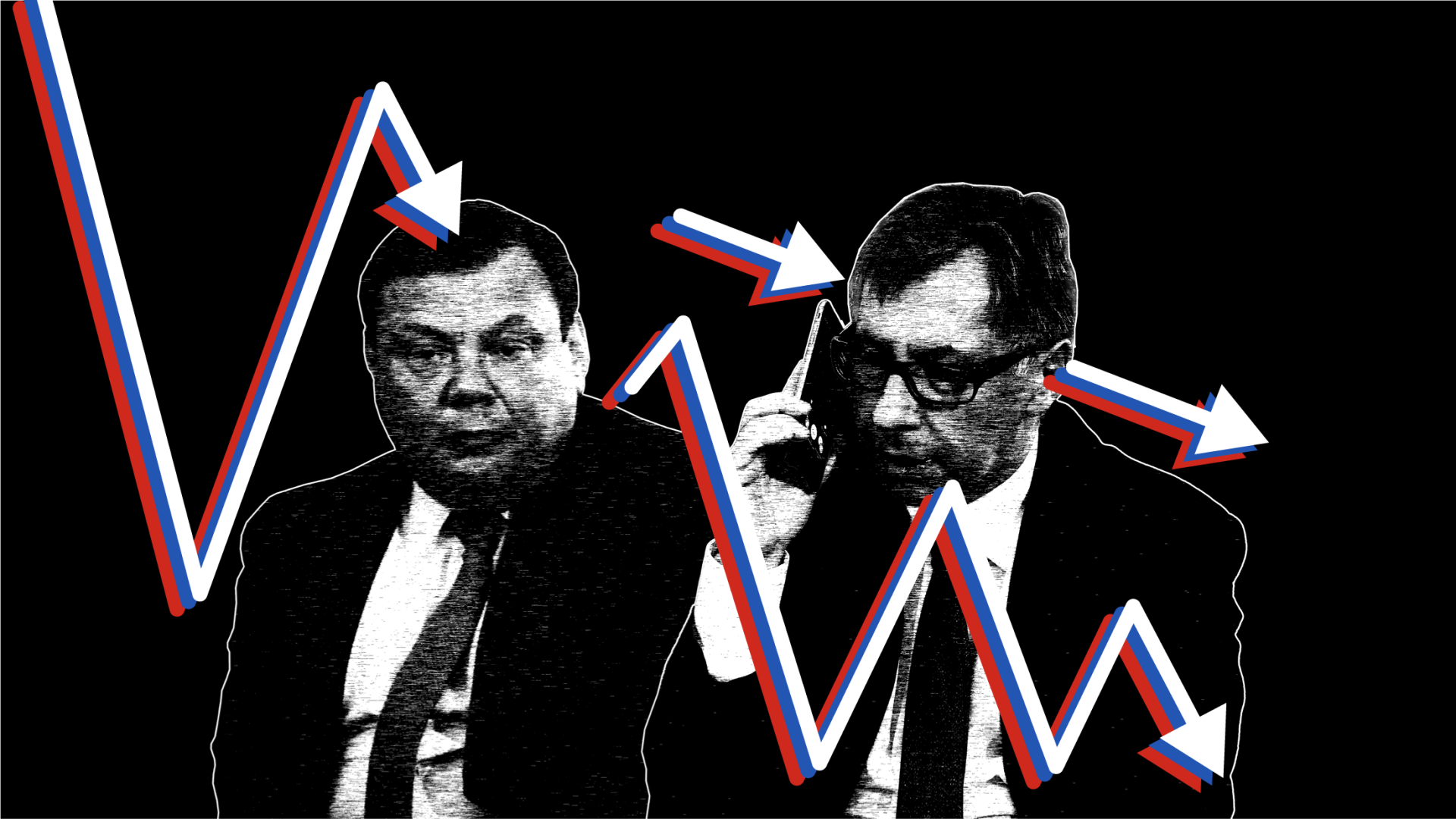- Category
- Business
Russian Oligarchs Condemn EU Sanctions but Stay Silent on Putin's Crimes in Ukraine

In the wake of the EU General Court's decision on April 10th to remove Russian billionaires Mikhail Fridman and Petr Aven from the sanctions list, Russian oligarchs have taken matters further and have started challenging other EU sanctions that continue to restrict their access to their European assets.
They have also started preparing lawsuits against EU countries. They are hoping to receive compensation of more than $15 billion while continuing to do business in Russia and even cooperating with the Russian military-industrial complex.
According to two sources cited by the Russian newspaper “Vedomosti,” Mikhail Fridman—through his representatives—has offered authorities in Luxembourg (where his business headquarters are located) to enter into ‘peace negotiations’ about compensation payments for the freezing of his assets under EU sanctions.
Reportedly, Fridman's lawyers sent the notice back in February, but they have not received a response yet. Fridman believes that the Luxembourg authorities have illegally expropriated his assets. The businessman demands compensation in the amount of $15.8 billion, which is the estimated value of his frozen assets.
Today, dozens of Russian oligarchs are trying to challenge EU sanctions and are actively scrubbing their online biographies. Fridman and Aven have also made considerable efforts over the years to appear distant from the Kremlin, but ultimately, their public rhetoric does not always match reality.
Fridman and Aven’s business structures have continued to work with the Russian defense sector, even though they publicly announced the termination of cooperation several years ago.
Who are Fridman and Aven?
Mikhail Fridman and Petr Aven are Russian businessmen known as the "Alfa Group" who amassed their wealth in the 1990s. Forbes magazine estimates Aven's net worth at $4.3 billion and Fridman's at $13.1 billion. Notably, Fridman was born in Lviv, Ukraine.
Their numerous business structures—which were also in Europe before the full-scale war—tried to avoid positioning themselves as purely Russian and instead preferred the brand of “transnational corporations.”
Their largest asset was “Alfa-Bank,” which operated not only in Russia but also in Ukraine and other predominantly post-Soviet countries. Their employees in Ukraine often liked to emphasize that the head office of the “Alfa Group” was not located in Moscow and that its owners had passports from other countries. However, the bank was the largest private bank in Russia with tens of millions of customers.
“Alfa Bank” and working with Russia’s defense sector
Despite the traditionally dominant role of state-owned banks in Russia's defense industry, with these banks being the largest market players, Alfa Bank has also been a fairly active player in this sector.
Alfa Bank continued to cooperate with Russian defense enterprises even after Russia invaded Ukraine in 2014. However, in 2018, Mikhail Fridman announced that the bank would withdraw from such cooperation due to the threat of sanctions pressure. Like other banks, it transferred its remaining "defense" loans to Promsvyazbank.
However, as reported in an investigation by "Proekt Media", in mid-2020 “Alfa-Bank” provided a credit line to an ammunition plant owned by oligarch Igor Rotenberg—who is close to Putin—presumably for 1.8 billion rubles. “Alfa-Bank” kept the credit line for the arms factory open even after the start of the full-scale war, and it was only closed in December 2022.
In addition, according to the investigation, “Alfa Insurance” provided medical insurance services to Russian defense enterprises. This company also insured the vehicles of 65 military units associated with the Rosgvardia and Russia’s Ministry of Defense.
In September 2023, the Security Services of Ukraine (SBU) joined the accusations against them regarding financing Russia's defense projects. The SBU reported that since the start of Russia's full-scale invasion, Fridman has invested about 2 billion rubles in several military factories of the aggressor country.
Among these were the aforementioned Tula Cartridge Plant and the Ural Optical-Mechanical Plant named after Yalamov. This plant produces high-tech equipment for Russian combat aircraft and helicopters.
The SBU statement said, "To finance the Kremlin's aggressive 'projects,' the oligarch uses the assets of the “Alfa-Group,” a Russian financial and investment consortium under his control."
The SBU also believes that the Russian oligarch ensured the cooperation of his own telecommunications company with the FSB, which allowed him to carry out mobile communications controlled by the Russian special services in the temporarily occupied regions of Ukraine.
So how honest is the pacifism of oligarchs?
At the beginning of the full-scale invasion, Fridman made a statement to the media, calling the start of the war "a tragedy for both nations." Since then, various rumors have circulated in the media, ranging from "Fridman is negotiating to obtain Ukrainian citizenship" to " he is selling his banking business in Russia to avoid sanctions."
But neither Fridman nor Aven have openly condemned Putin's war in Ukraine, and their companies continue to cooperate with Russian military structures. The court's decision to lift sanctions was based on the lack of evidence proving that they supported actions or policies that undermined or threatened Ukraine's territorial integrity, sovereignty, and independence.
Friedman himself curiously moved from the UK to Israel, and after the conflict there began, he went to Moscow. This is quite unusual, considering that many Russian businessmen who were not close to the Kremlin did not dare to return to Moscow even in relatively calmer times.
It is known that the oligarchs have already challenged other sanctions that are still in effect. Sources from "Vedomosti" reported that Fridman believes Luxembourg violated the 1989 bilateral investment treaty between Belgium and Luxembourg on one side, and the Soviet Union (and Russia as its successor) on the other, by freezing his assets.
According to this treaty, the Luxembourg authorities have six months to respond, after which Fridman can appeal to the UN Commission on International Trade Law or the Stockholm Arbitration. Meanwhile, Fridman has not publicly condemned the Russian authorities for starting the war, which regularly shells the country where he was born.
-206008aed5f329e86c52788e3e423f23.jpg)
-270e13af43760897c8cb3e7f3ee9adf1.png)

-b63fc610dd4af1b737643522d6baf184.jpg)

-099180a164f53abb1128c9b5025a2b0e.jpg)
-46f6afa2f66d31ff3df8ea1a8f5524ec.jpg)
-4390b3efd5ecfe59eeed3643ea284dd2.png)